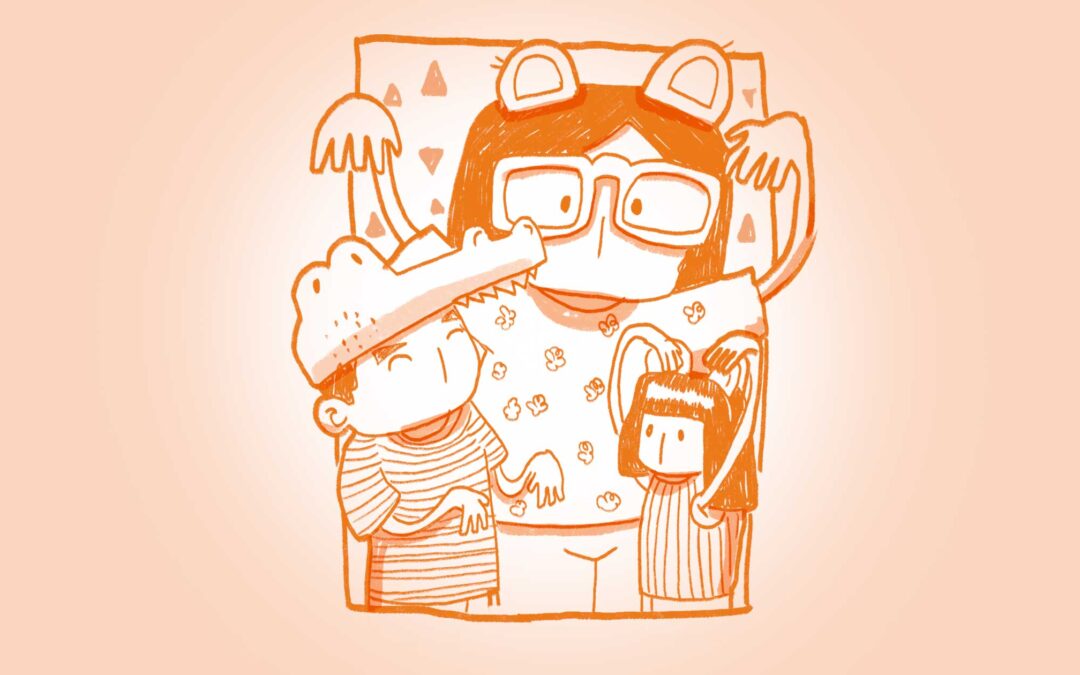The freedom a child experiences through play means so much more than just running, jumping and imagining. Playtime is absolutely essential to healthy early childhood development.
And it begins sooner than you might think.
Watching your months-old baby grab new objects and toys, study them and put them in his mouth is where it all starts. They are right at the beginning stages of trying to comprehend his world through sensation and study. As your baby is also learning which sounds to make to get your attention, they are also beginning to comprehend interactivity. They’re learning to play.
You’re his first playmate!
And, as your child grows, learns to walk and talk, and begins to get involved with her world in more dynamic ways, the playtime becomes even more important.
And it’s here where your role as playmate and play inspiration also kicks into high gear.
Play encourages cognitive development in your child. As they create new situations, they’re also creating new problems to solve. Through play, children engage in pretend scenarios, construct their own narratives, and explore cause-and-effect relationships. It boosts their cognitive abilities and encourages them to use creativity to come up with unique solutions to their invented situations.
Have you noticed your playing child talking to himself? That’s a good thing! All that talk is one of the best ways your child can boost his language and communication skills. As your child talks his way through adventures and invented worlds of his own creation, he’s also learning how to navigate the nuances of human interaction.
Active play, such as running, jumping, climbing, and balancing, promotes gross motor skills and coordination. Physical development is an important part of childhood, so much so that every well check doctor’s office visit checks for it. It’s also something we take for granted as adults, not remembering a time when we couldn’t do everything. Active playtime helps your child grow into himself physically.
Another ability we adults take for granted is social skill. Your child’s active play time will inevitably become social, especially out on the playground. It’s thrilling to watch your child make an afternoon bff and take off running, chattering and laughing. Encouraging this behavior is great for your child, and helps them develop a sense of belonging, build friendships, and establish social bonds.
Play also helps your child define likes and dislikes and slowly form an identity. As they play, your child will begin to develop a sense of self. Through experimentation with different roles and personas, they will begin to have a clearer understanding of who they are and who they’d like to be.
But we didn’t forget about you, parents!
And your job is to stick close and help in any way you can. Yes, that includes getting down in the dirt and actively engaging in playtime with your child. By doing so, you’ll be providing your child with an active role model, someone they can look up to and learn the ropes from.
Sometimes you’re the only person who will play with them. Makes sense, really. You’re always around when they need someone to bounce off of. Someone has to be there to catch the baseball, play the bad cowboy, help hold up the giant block tower, or turn the Lego instruction pages.
While you’re at it, you can push your child toward academic excellence by creating situations that inspire their inquisitive minds to learn, and encourage them to discover solutions for themselves.
Finally, and this one’s great for both of you, taking part in playtime with your child is a great way to bond. As you play with them, you’ll be constantly reminded why they’ve quickly become one of your absolute favorite people.
By engaging in play, children develop crucial life skills, build relationships, explore their identities, and experience joy and relaxation.
A great way to encourage playtime in your child is with Twibbles creative packets. Loaded with coloring pages, puzzles and early reading exercises, our packets are ready-made for playtime success and available with every purchase, or separately.
With so many ways to get your child’s imagination, relaxation and physicality inspired through playtime, there’s no time like the present to get playing!
It’s the best!

